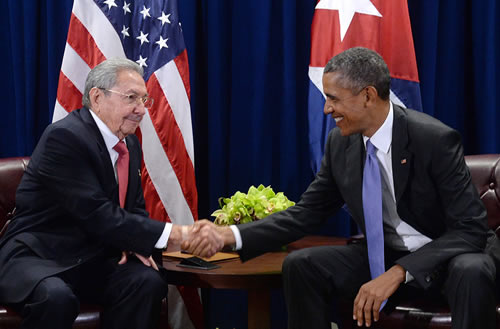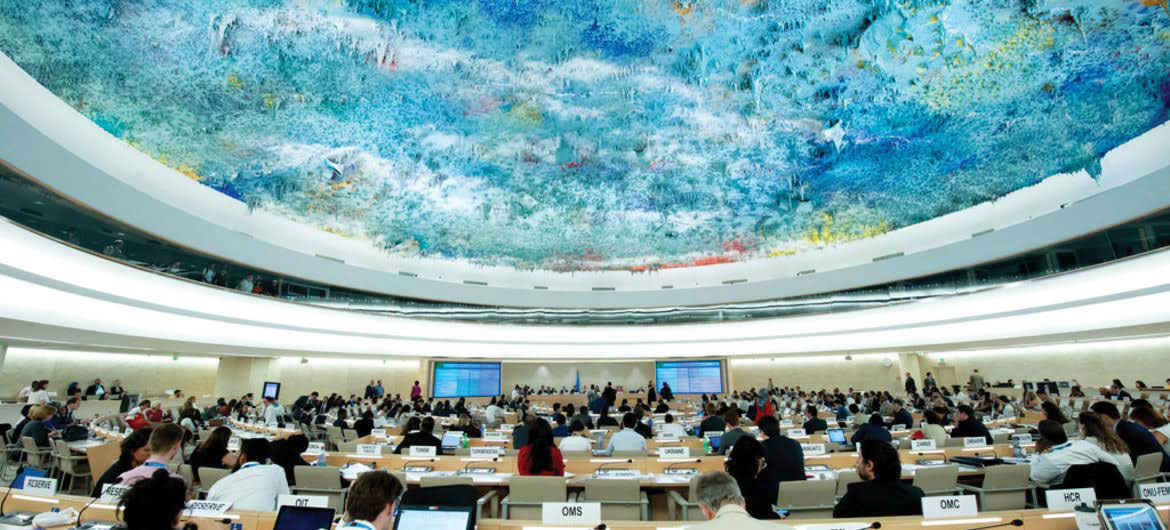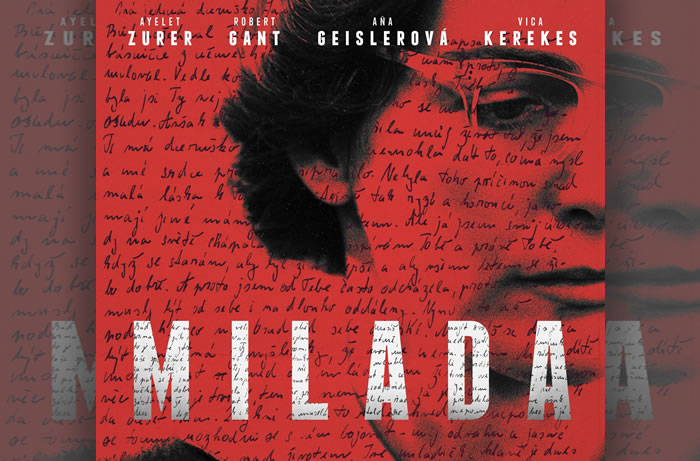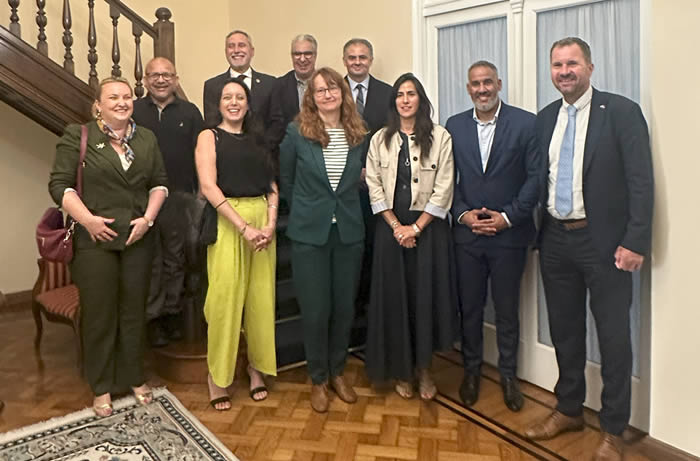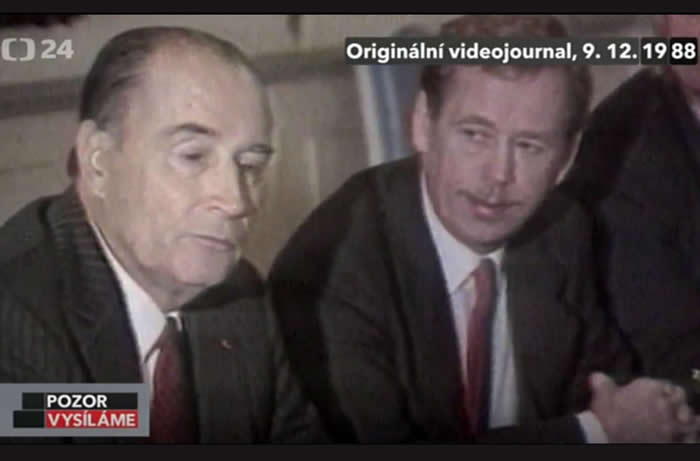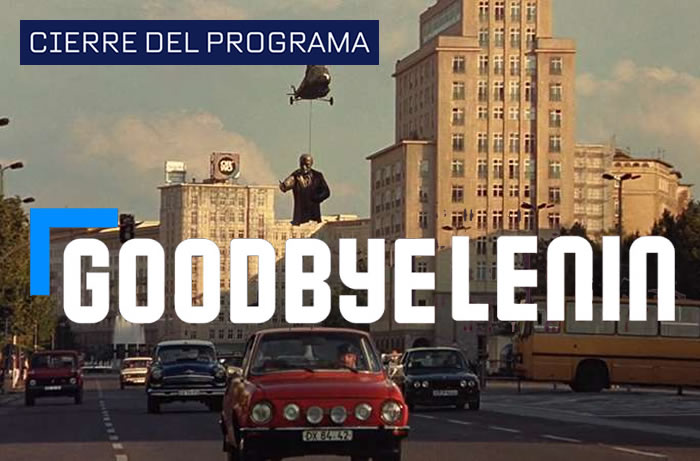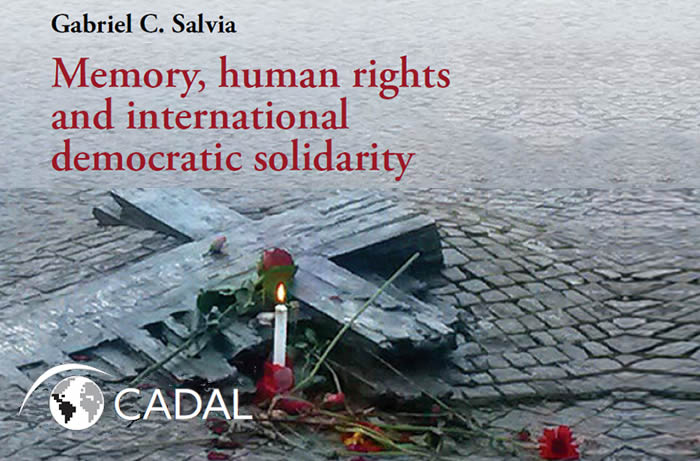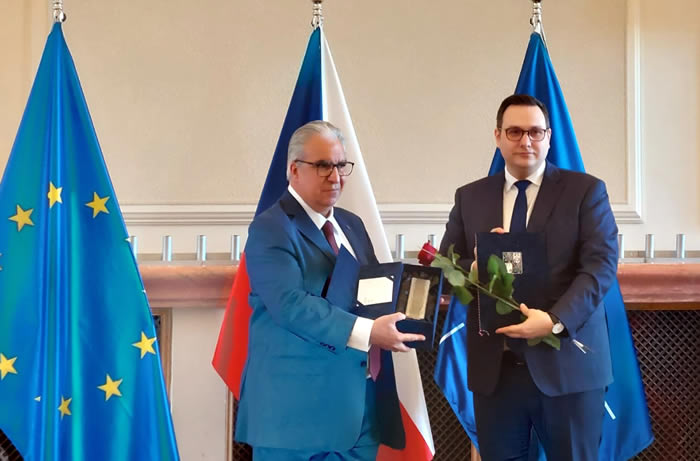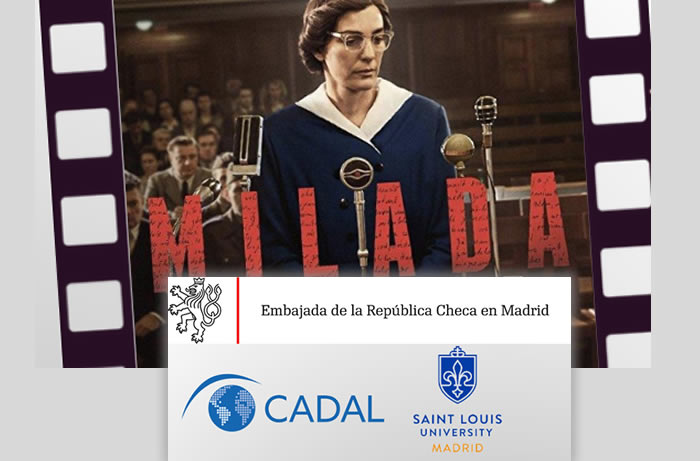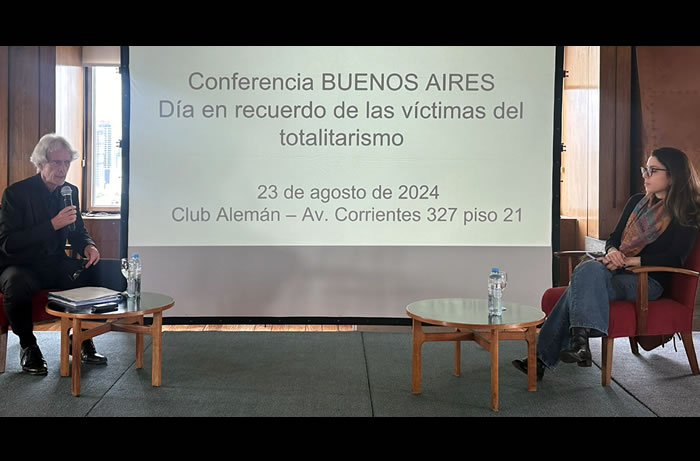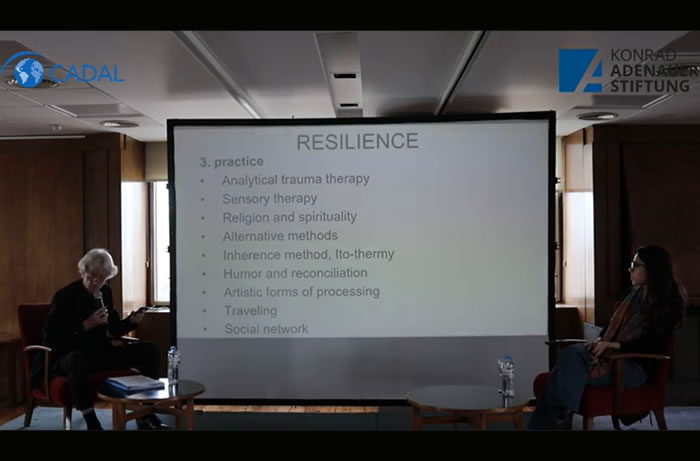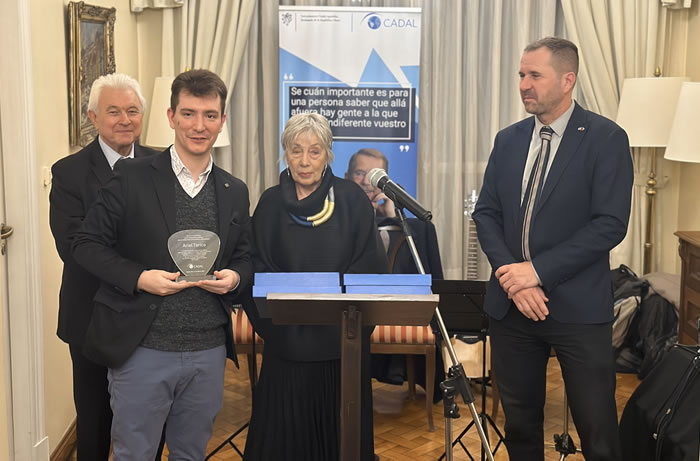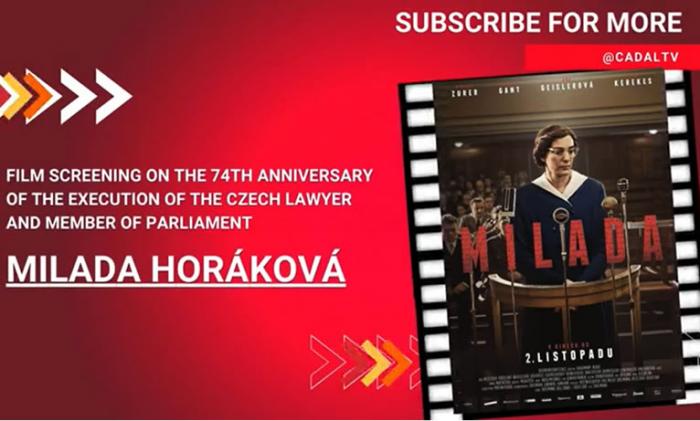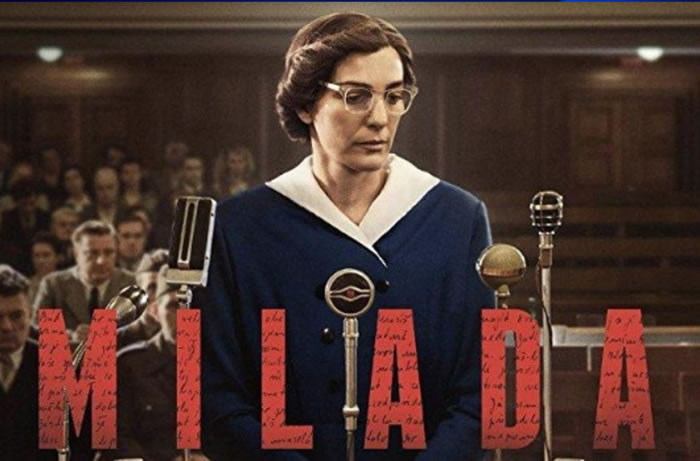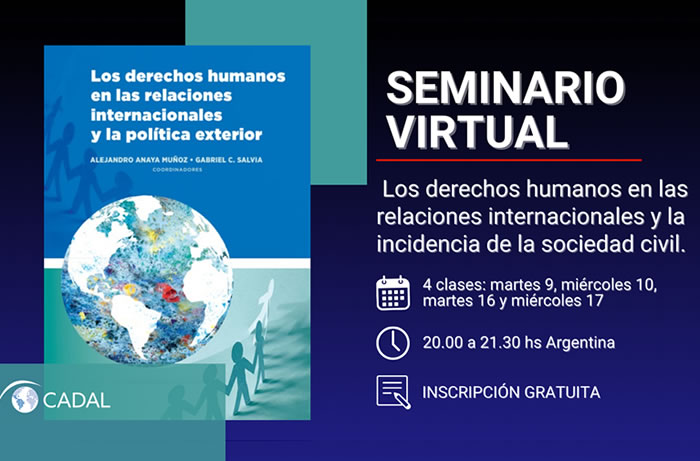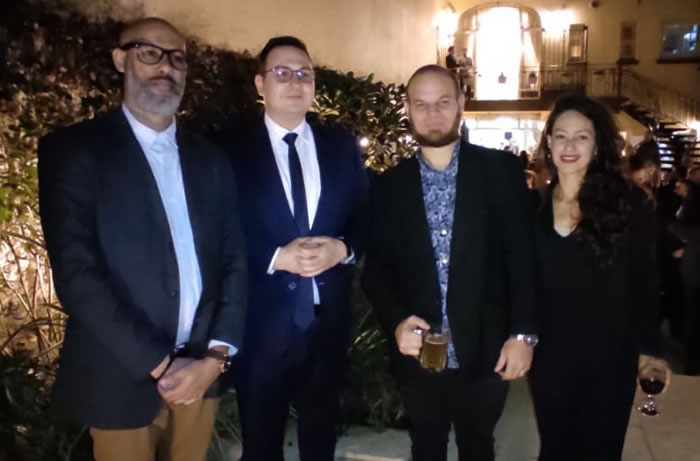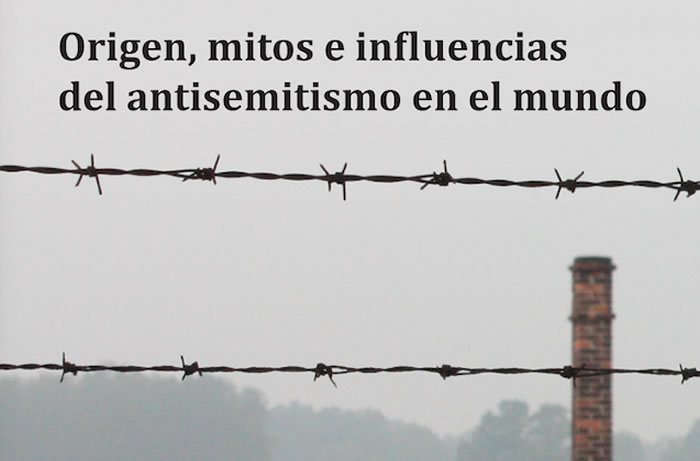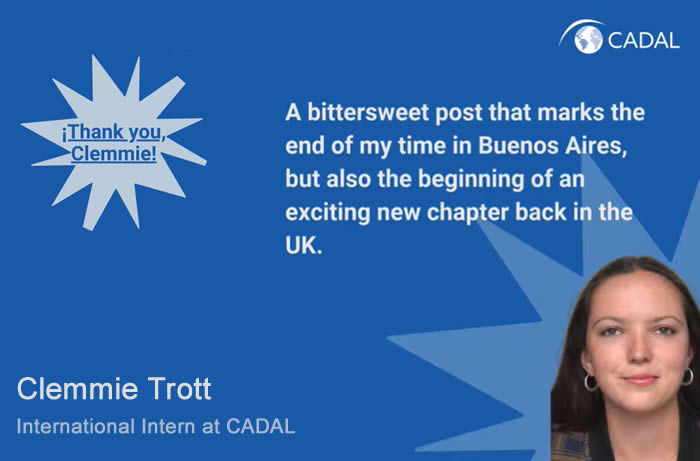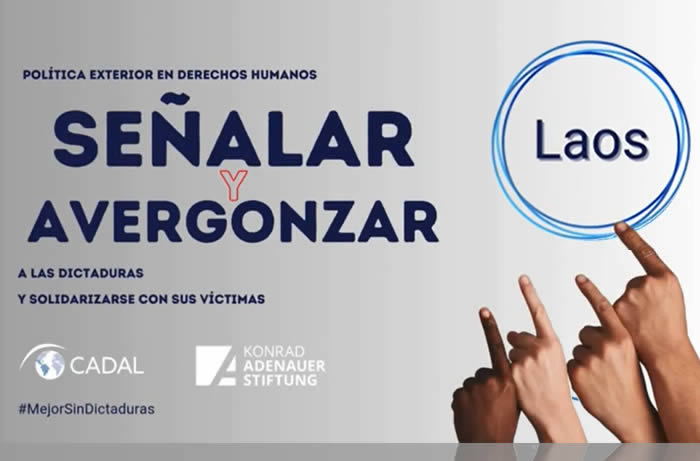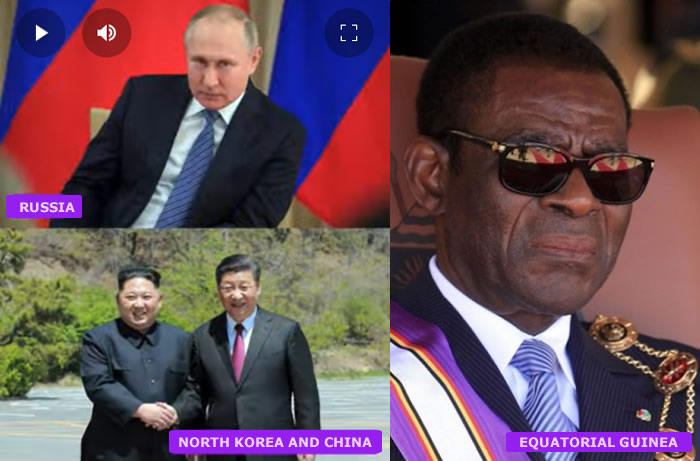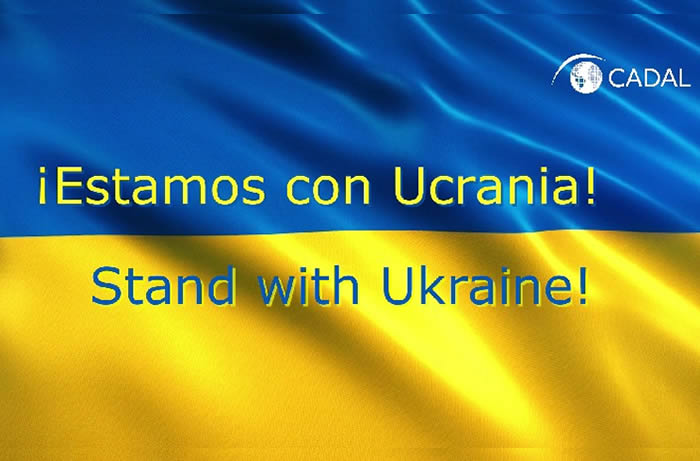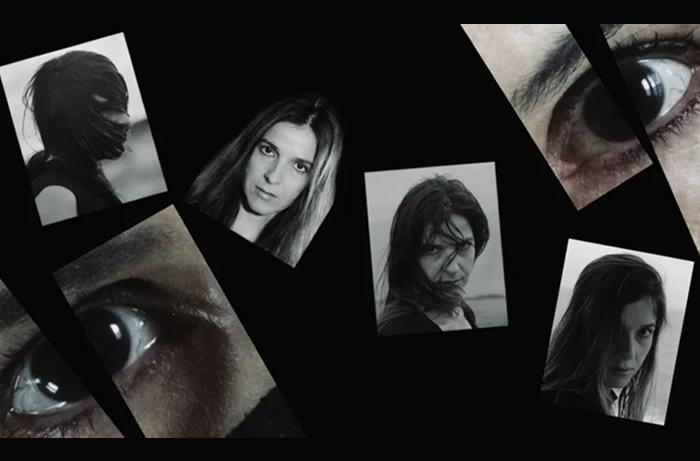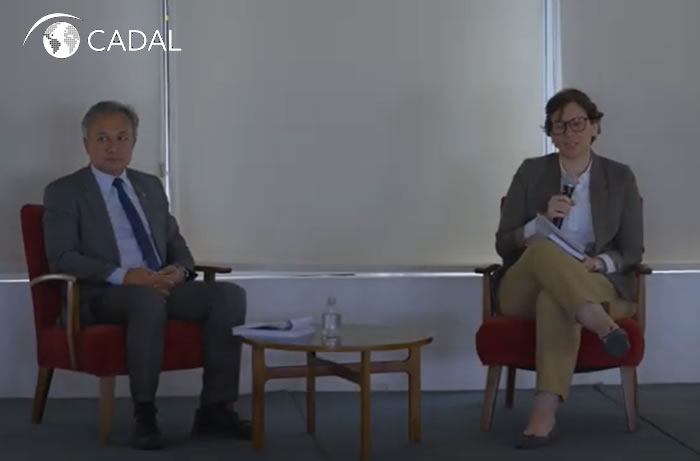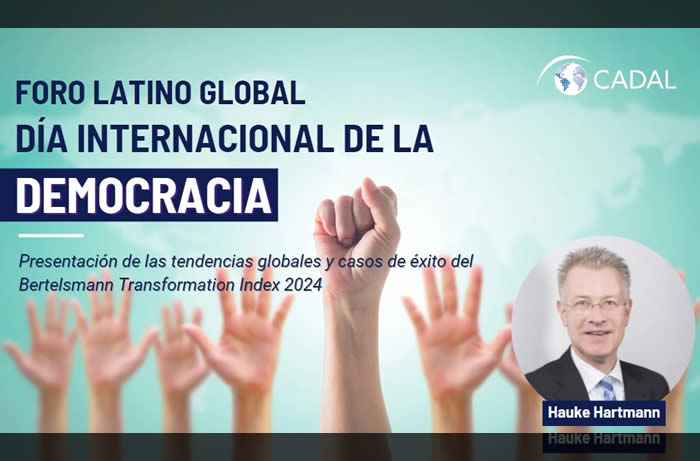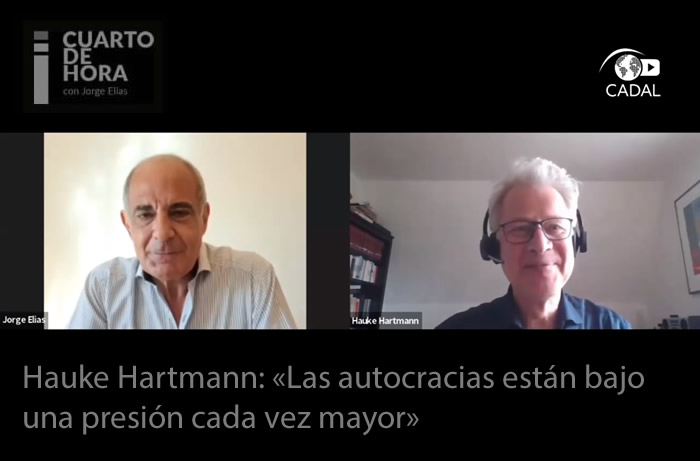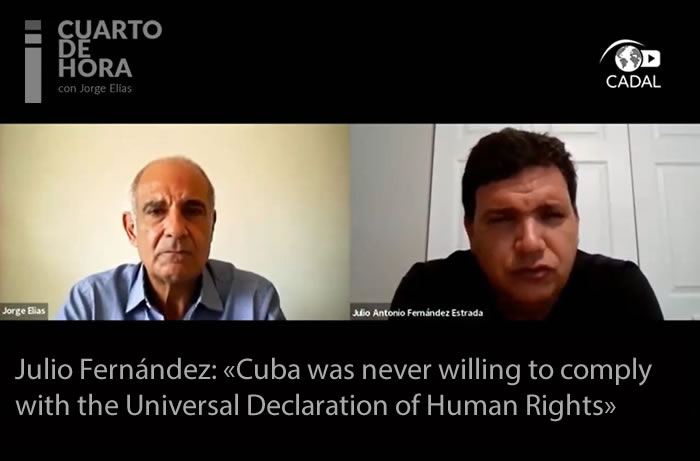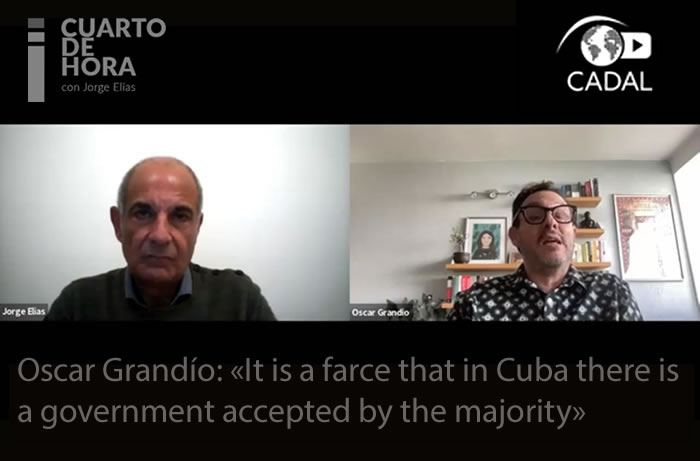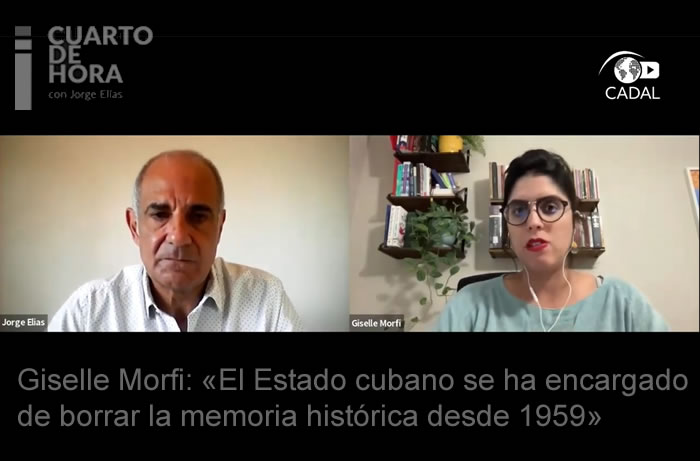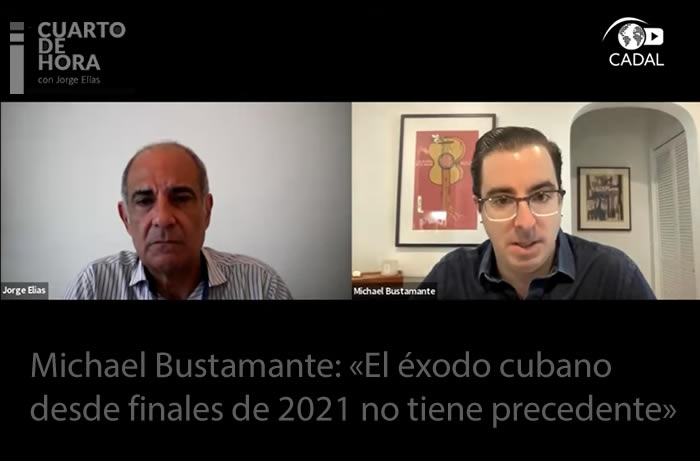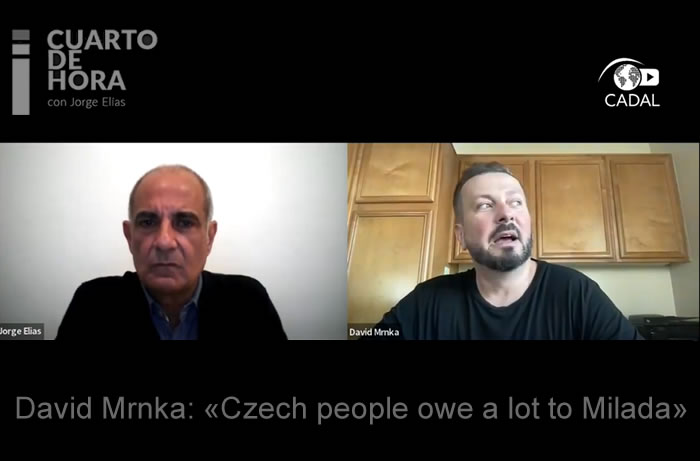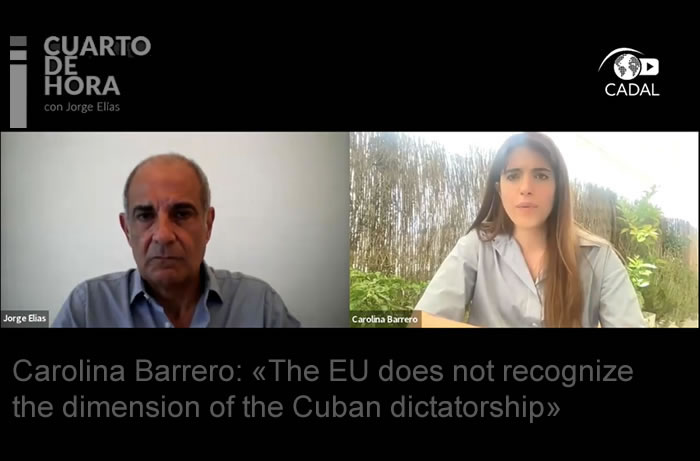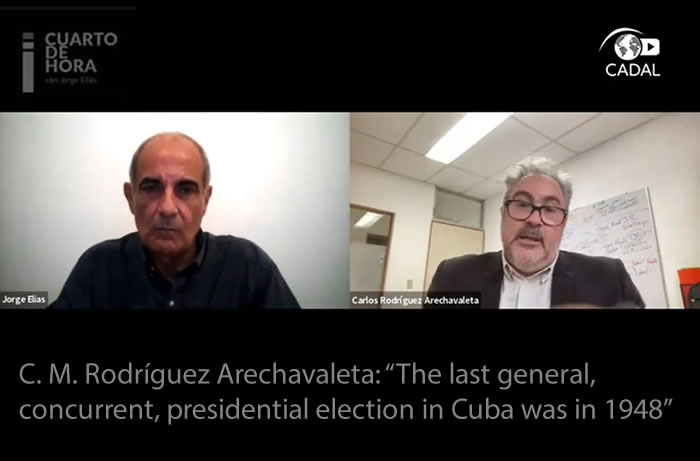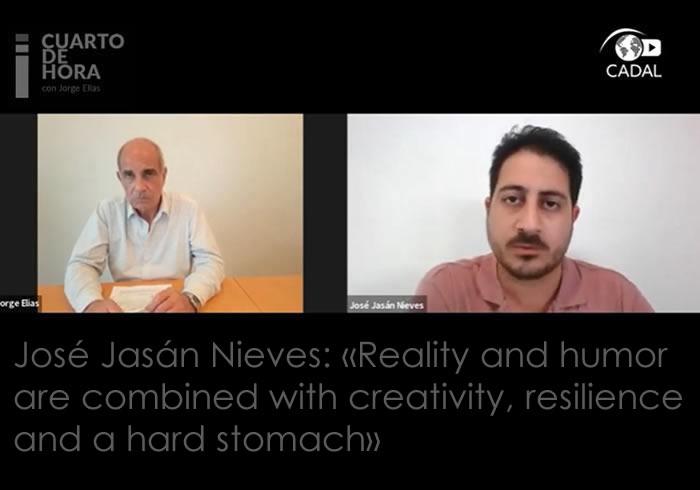Articles
Václav Havel Institute
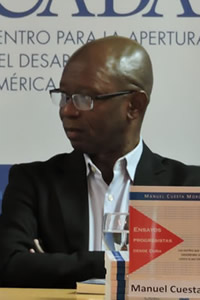 12-18-2018
12-18-2018For Havel, liberty was always the condition
We must thank Michael Zantovsky for the awe, the laughter, the criticism, the almost intimate talk, and the slight psychological detachment provoked by some of the snippets narrated in the life of his friend. Zantovsky has privileged information of Havel and (almost) does not hold back, doing to all human beings a favor.
By Manuel Cuesta Morúa
I have just read a powerfully human book. “Havel, A Life”, the biography that Michael Zantovsky wrote about Václav Havel, leader of the Velvet Revolution and friend of his, to whom he served as a spokesperson and as an ambassador to the United States, the State of Israel and the United Kingdom, is exactly that: a sort of human account of an exceptional man.
For Cubans, this is a strange biography, so to speak. I have read only three biographies, this one included, of men who are no longer with us that end up being significantly anti-paradigmatic. We believe biographies should range between patristic and hagiography: the life and story of haloed men etched in the granitic rock of myth, who almost never trip on history and whose missteps, mistakes and flaws are glossed over so that the pedagogical imitation we must follow is not weakened.
Nelson Mandela’s, Martin Luther King‘s and this autobiography have little to do with that biblical ideal of human beings.
We must thank Michael Zantovsky for the awe, the laughter, the criticism, the almost intimate talk, and the slight psychological detachment provoked by some of the snippets narrated in the life of his friend. Zantovsky has privileged information of Havel and (almost) does not hold back, doing to all human beings a favor.
The narration structure is masterly. He starts at the end, facing the admired man respected by every freedom-loving person, to whom all the honors were given both in the Czech Republic and in the rest of the world, and to whom we owe that liberty has become once again the political ideal to strive for. We must stay with this Havel.
This is fine ... so that we are ready. Because we are still with the Havel that follows, or better expressed, we are him. We already know that Havel is the hero, but he is the anti-hero as well, which we didn’t know. The man who was filled with doubts, who must have been insecure until his final days, but was resolute enough to make the decisions that led his country through the smooth transition to democracy.
His childhood? It had hints about his future. Without any inappropriate concessions to psychoanalysis, it should be noted that the trauma of politics already appeared in his childhood. Regarding a visit from his grandmother from the little town of Zlin, his mother wrote: “I am sure that he wants to read political editorials to you and he will undoubtedly add his own comments.”
The author avoids becoming Victorian. Avoiding issues that would be considered by any aristocrat against tradition has no place in his text. Havel does not seem to have had a strong relationship with his mother, but with his father. And this is a point that has an essential psychological value, as it allows the reader to understand the relationships that Havel maintained with other women throughout his life, which had some impact on his political life. From Olga – Letters to Olga is a book that should be read to have another approach to human contradictions and angst – to his second and last wife Dasa Veskrnova, a well-known comedy actress, to whom the political world didn’t give much room.
The Havel of romantic affairs somewhat shows his bohemian side. To repeat that he was an enthusiastic and acknowledged playwriter does not add much. But the fact that he was an unsuccessful scriptwriter displays another aspect of his personality that helps to understand his political action: the experimentation. The most important highlight is not his work as an artist, but the value that this aesthetical nature had in politics.
The best art, or should I say most of the art, is a reflection of the deep angst that the artist sublimates and expresses in various ways, even in the own contradictions of its moral and personal life. In terms of partisan ethics Havel sometimes wavered in prison, the same Havel that mocked the army in one of his plays, who felt abandoned in his fight for the freedom of Czechoslovakia, who drowned his powerlessness in bars with his artist friends, which boiled down his moral and civic principles of fighting for liberty to what we could call his international politic doctrine and his strategic considerations to free the Powerless. Charter 77 was above anything else a political option founded on aesthetic by people who had a political sense, at least as Hannah Arendt explained: the raison d’être is freedom and action, its field of experience. That is why for Havel, liberty was always the condition.
After reading this biography, it becomes clearer that Havel’s personal and intellectual views were at the root of the Velvet Revolution. Knowing Havel better helps to understand why the Velvet Revolution was first a moral and intellectual revolution that ended up in a political revolution. The Velvet could be a great metaphor about the lability, flexibility, and tolerance that culture always gives to human coexistence. In other words, it is a metaphor of Havel itself.
It also helps to understand, from this cultural point of view, why Havel was an atypical politician in more than just one sense: he was neither a party member nor a cerebral strategist – like Václav Klaus, his formidable political rival. He never understood much about the butterfly effect, ever-present in politics – the stagnation of the arms industry in Slovakia was a milestone in the split of both countries - nor about the relevance of the economic factors for political choices and politics itself.
This is the reason why, almost by the end of his life, Havel was more of a reference around the world than in his own country. The doctrine of humanitarian intervention owes a lot to him: the emphasis on Human Rights as foreign policy has been more influenced by him than by American ex-president James Carter. The relevance of global reflection for the defense and promotion of democracy is at the root of Forum 2000, the space that annually assembles people from all around the world and always more necessary in a time in which democracy suffers, at least, from diabetes.
 Manuel Cuesta MorúaHistorian, political scientist and essayist. Spokesman for the Arco Progresista Party, he has written numerous essays and articles, and published in several Cuban and foreign magazines, in addition to participating in national and international events. In 2016 he received the Ion Ratiu Award from the Woodrow Wilson Center.
Manuel Cuesta MorúaHistorian, political scientist and essayist. Spokesman for the Arco Progresista Party, he has written numerous essays and articles, and published in several Cuban and foreign magazines, in addition to participating in national and international events. In 2016 he received the Ion Ratiu Award from the Woodrow Wilson Center.
I have just read a powerfully human book. “Havel, A Life”, the biography that Michael Zantovsky wrote about Václav Havel, leader of the Velvet Revolution and friend of his, to whom he served as a spokesperson and as an ambassador to the United States, the State of Israel and the United Kingdom, is exactly that: a sort of human account of an exceptional man.
For Cubans, this is a strange biography, so to speak. I have read only three biographies, this one included, of men who are no longer with us that end up being significantly anti-paradigmatic. We believe biographies should range between patristic and hagiography: the life and story of haloed men etched in the granitic rock of myth, who almost never trip on history and whose missteps, mistakes and flaws are glossed over so that the pedagogical imitation we must follow is not weakened.
Nelson Mandela’s, Martin Luther King‘s and this autobiography have little to do with that biblical ideal of human beings.
We must thank Michael Zantovsky for the awe, the laughter, the criticism, the almost intimate talk, and the slight psychological detachment provoked by some of the snippets narrated in the life of his friend. Zantovsky has privileged information of Havel and (almost) does not hold back, doing to all human beings a favor.
The narration structure is masterly. He starts at the end, facing the admired man respected by every freedom-loving person, to whom all the honors were given both in the Czech Republic and in the rest of the world, and to whom we owe that liberty has become once again the political ideal to strive for. We must stay with this Havel.
This is fine ... so that we are ready. Because we are still with the Havel that follows, or better expressed, we are him. We already know that Havel is the hero, but he is the anti-hero as well, which we didn’t know. The man who was filled with doubts, who must have been insecure until his final days, but was resolute enough to make the decisions that led his country through the smooth transition to democracy.
His childhood? It had hints about his future. Without any inappropriate concessions to psychoanalysis, it should be noted that the trauma of politics already appeared in his childhood. Regarding a visit from his grandmother from the little town of Zlin, his mother wrote: “I am sure that he wants to read political editorials to you and he will undoubtedly add his own comments.”
The author avoids becoming Victorian. Avoiding issues that would be considered by any aristocrat against tradition has no place in his text. Havel does not seem to have had a strong relationship with his mother, but with his father. And this is a point that has an essential psychological value, as it allows the reader to understand the relationships that Havel maintained with other women throughout his life, which had some impact on his political life. From Olga – Letters to Olga is a book that should be read to have another approach to human contradictions and angst – to his second and last wife Dasa Veskrnova, a well-known comedy actress, to whom the political world didn’t give much room.
The Havel of romantic affairs somewhat shows his bohemian side. To repeat that he was an enthusiastic and acknowledged playwriter does not add much. But the fact that he was an unsuccessful scriptwriter displays another aspect of his personality that helps to understand his political action: the experimentation. The most important highlight is not his work as an artist, but the value that this aesthetical nature had in politics.
The best art, or should I say most of the art, is a reflection of the deep angst that the artist sublimates and expresses in various ways, even in the own contradictions of its moral and personal life. In terms of partisan ethics Havel sometimes wavered in prison, the same Havel that mocked the army in one of his plays, who felt abandoned in his fight for the freedom of Czechoslovakia, who drowned his powerlessness in bars with his artist friends, which boiled down his moral and civic principles of fighting for liberty to what we could call his international politic doctrine and his strategic considerations to free the Powerless. Charter 77 was above anything else a political option founded on aesthetic by people who had a political sense, at least as Hannah Arendt explained: the raison d’être is freedom and action, its field of experience. That is why for Havel, liberty was always the condition.
After reading this biography, it becomes clearer that Havel’s personal and intellectual views were at the root of the Velvet Revolution. Knowing Havel better helps to understand why the Velvet Revolution was first a moral and intellectual revolution that ended up in a political revolution. The Velvet could be a great metaphor about the lability, flexibility, and tolerance that culture always gives to human coexistence. In other words, it is a metaphor of Havel itself.
It also helps to understand, from this cultural point of view, why Havel was an atypical politician in more than just one sense: he was neither a party member nor a cerebral strategist – like Václav Klaus, his formidable political rival. He never understood much about the butterfly effect, ever-present in politics – the stagnation of the arms industry in Slovakia was a milestone in the split of both countries - nor about the relevance of the economic factors for political choices and politics itself.
This is the reason why, almost by the end of his life, Havel was more of a reference around the world than in his own country. The doctrine of humanitarian intervention owes a lot to him: the emphasis on Human Rights as foreign policy has been more influenced by him than by American ex-president James Carter. The relevance of global reflection for the defense and promotion of democracy is at the root of Forum 2000, the space that annually assembles people from all around the world and always more necessary in a time in which democracy suffers, at least, from diabetes.

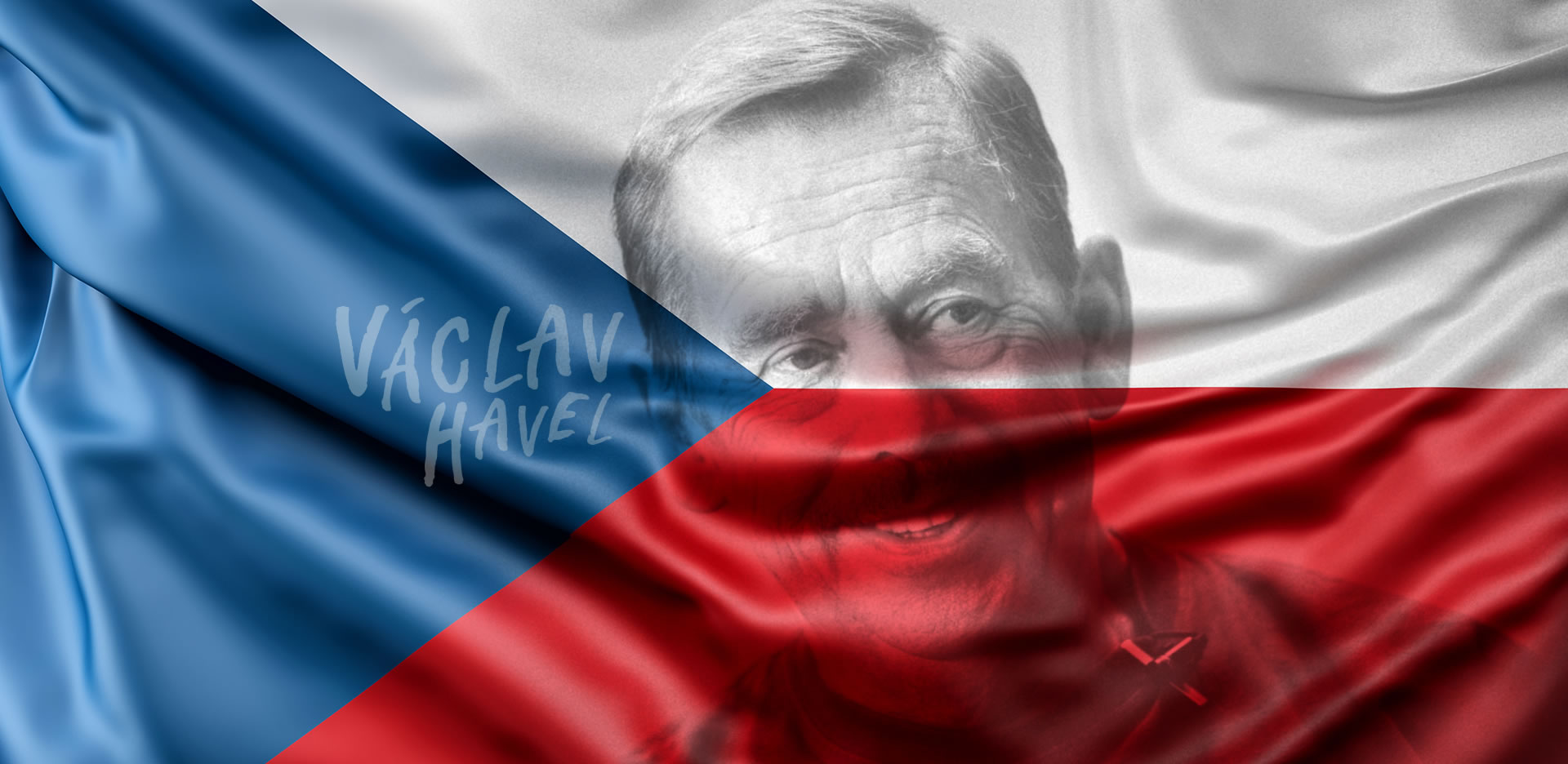


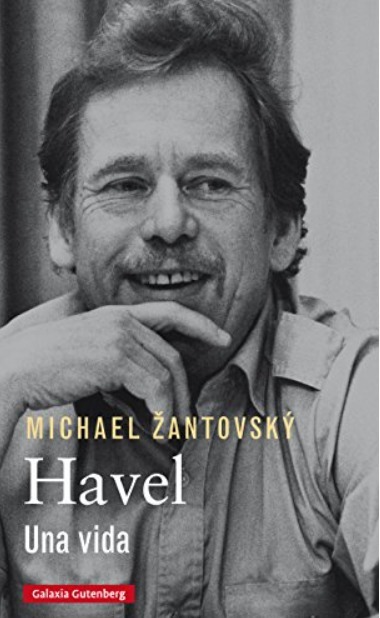
 Leer esta nota en Español
Leer esta nota en Español